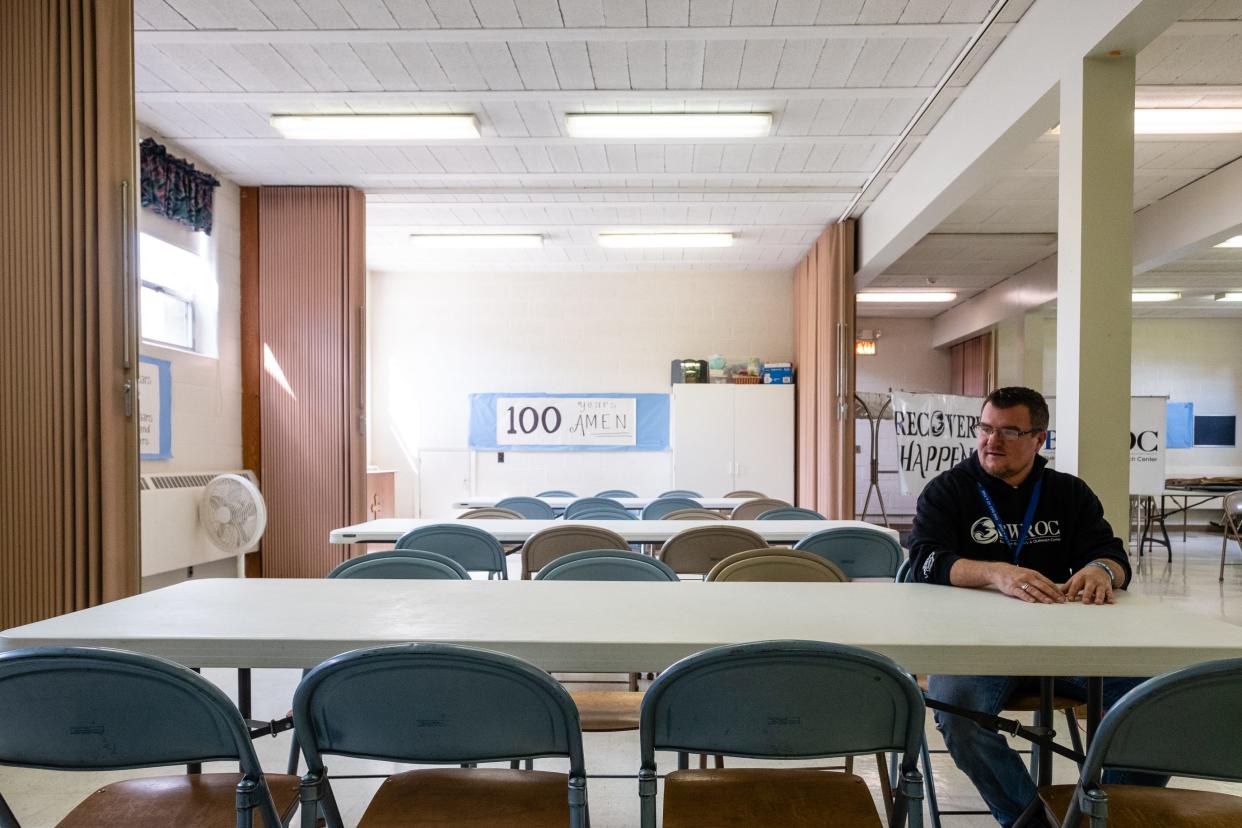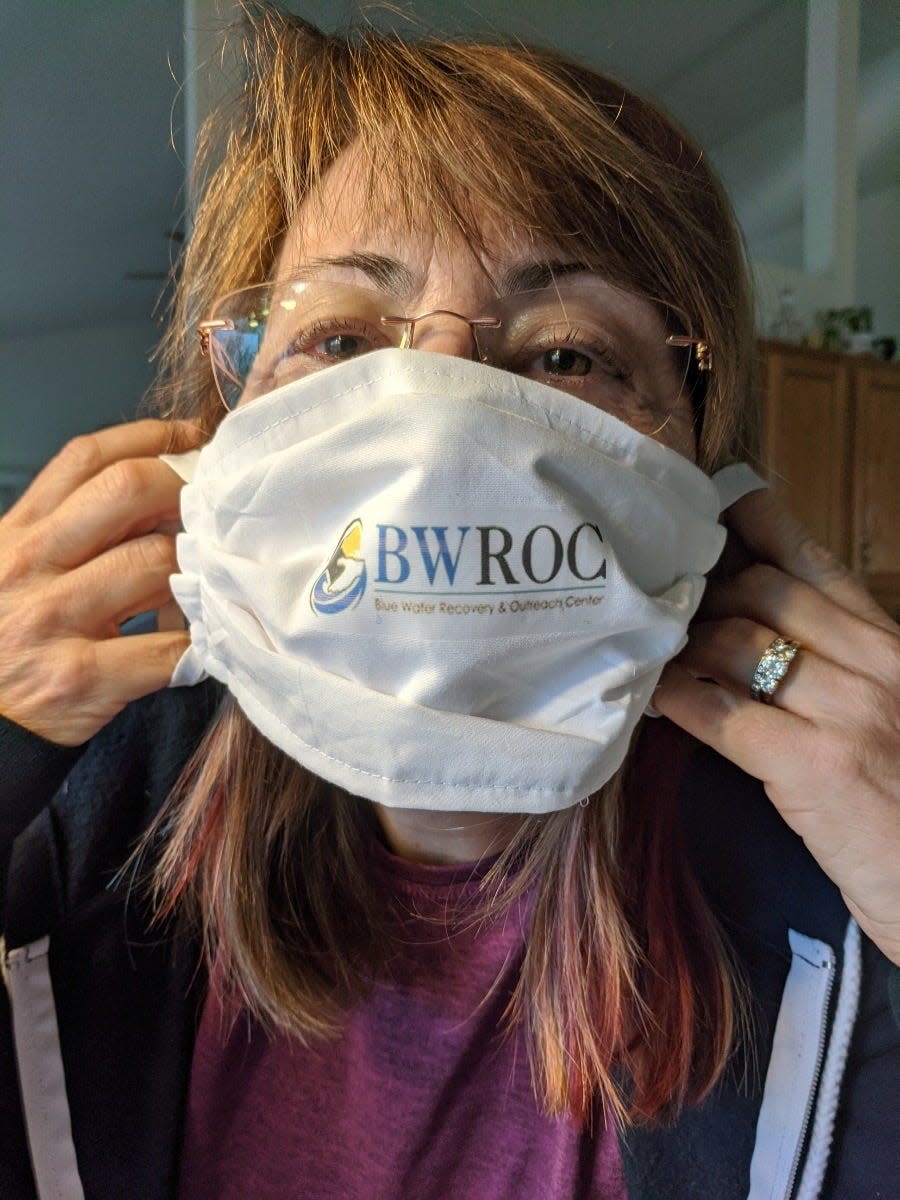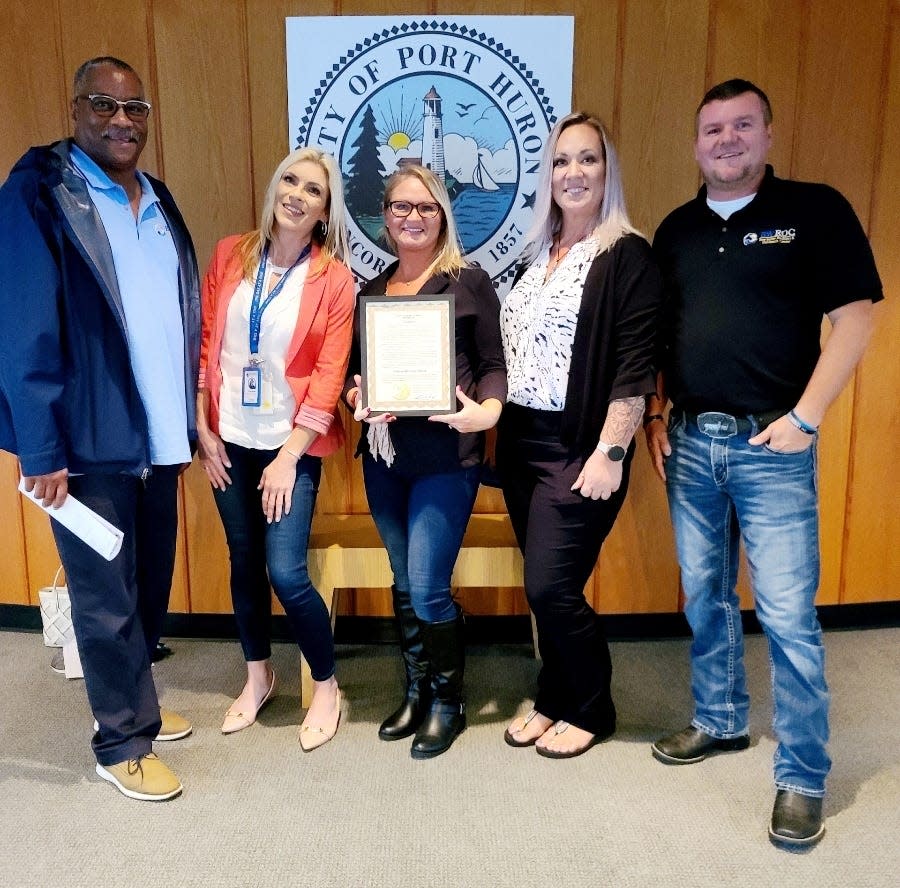Port Huron may use over $400K in federal funds to help nonprofit battle substance abuse

The city of Port Huron may use some of its millions in federal American Rescue Plan funds to give a nonprofit to bolster its efforts in combating the local substance abuse crisis.
According to a proposal from Blue Water Recovery and Outreach Center, more than $300,000 would go toward two additional recovery coaches for three years with the group with more than another $100,000 going toward a van, building renovation, office equipment, and more.
City Manager James Freed notified City Council members of the proposal last week, adding via email that he had reached out to BWROC’s director, Patrick Patterson, on how they can help.
He said the plan is to introduce the proposal during the council’s goal-setting session on Monday and members’ first meeting in February — something he emphasized, in follow-up, was their decision.
Patterson said that the funds cited would help BWROC to operate at full capacity.
“The need is real, the need is now, and here’s the solution,” he said this week. “… I think it’s an awesome demonstration (from) the city. We come at this tremendous gratitude and humility and thankfulness.”

Weighing BWROC's needs versus others citywide
Freed said BWROC addresses an issue “the mayor and council have been very focused on” previously, but that often, other St. Clair County agencies cover needs to address substance use disorders via financing through things like the Medicaid-backed Region 10 Pre-Paid Inpatient Health Plan.
“The funding mechanism for substance abuse and rehab services go through the health department and Community Mental Health,” he said this week. “So, this is a rare opportunity to buttress those efforts in a robust way.”
In his message to council members, the city manager applauded the BWROC's "grassroots leaders" for serving and bringing together "a remarkable community of survivors." On Wednesday, Mayor Pauline Repp cited her own experience on a local opioid oversight executive committee in realizing the scope of the problem with substance abuse and how the group could help.
With roughly $18 million in ARP over two years, city officials have also previously discussed using federal funds to accommodate needed upgrades to city buildings, among a long list of other needs.
“The long way around it, some of those improvements have to be done, and it will cost taxpayers a different money if it doesn’t come out of this," Repp said of ARP funds. “So, we’re looking at things and the proposal from BWROC is one of them, too, and any kind of thing in recreation that benefits (residents) are things that I, personally, would like to look at, as well.”

More on how outreach group may use funds
Currently, the organization includes Patterson, as well as three existing recovery coaches and one recovery support specialist. And Patterson said the funding help isn’t about “trying to redevelop the solution but coming alongside an organization that’s already demonstrated to be a part of the solution.”
About $3,000, under their proposal, would go toward website enhancement to help people looking for treatment, and $22,552 and $32,451 would go toward equipment and renovations. BWROC is currently located at 607 10th St.
Then, things like $54,110 for a van, for transportation to and from rehabilitation centers, and assisting in job searches, among other things, was a need that was always there.
“Those have been in need from the beginning, and now, we’re able to accomplish them,” Patterson said. “I mean, as far as the van is concerned, that was a need three or four years ago when we started. And our recovery coaches do a lot of that driving. I did a ton of that driving early on.
“Transporting people to rehab, back and forth, picking people up that don’t have a driver’s license. There’s many scenarios that involve when somebody comes to us they do not have a driver’s license. Drive by BWROC at seven o’clock at night and you’ll see a lot of bicycles out there. Drive by BWROC on a Saturday morning at 10 a.m., and you’ll see 30. So, that van is a gap that we have in the community to transport people as a solution when someone’s restoring their life.”
Contact Jackie Smith at (810) 989-6270 or jssmith@gannett.com. Follow her on Twitter @Jackie20Smith.
This article originally appeared on Port Huron Times Herald: City may use over $400K in federal to help nonprofit battle substance abuse
